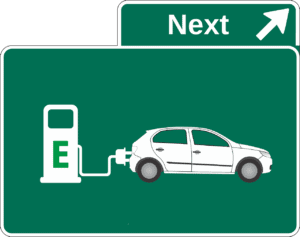 A major difficulty in electric vehicle adoption is their battery capacity and range. One new study could help us potentially triple electric car range, hopefully supporting the global break from fossil fuels.
A major difficulty in electric vehicle adoption is their battery capacity and range. One new study could help us potentially triple electric car range, hopefully supporting the global break from fossil fuels.As increasingly more companies and governments move to reduce dependence on fossil fuels, it is becoming apparent that electric car ranges must be further increased. We must expand battery life and output in order to both contend with and surpass gas-powered vehicles. To contend with this necessity, companies like Tesla, Toshiba, Panasonic, and Samsung are making great strides in improving range and battery capacity, but all have yet to fully surpass significant hurdles.
However, a new paper by researchers at the University of Waterloo claims that the use of negative electrodes made of lithium metal could “dramatically increase battery storage capacity,” which could in turn drastically improve capabilities of electric-powered vehicles.
The paper, published in the journal Joule, details how scientists added a compound made up of phosphorus […]











Interesting paper and plating strategy. Let us hope this works and becomes commercialized faster than all the other promises that don’t pan out. I would prefer battery tech that does not use lithium due to toxicity and resource mining constraints..but at this point it is better than nothing..which is more or less what we have now. Looking forward to viable electric transportation.